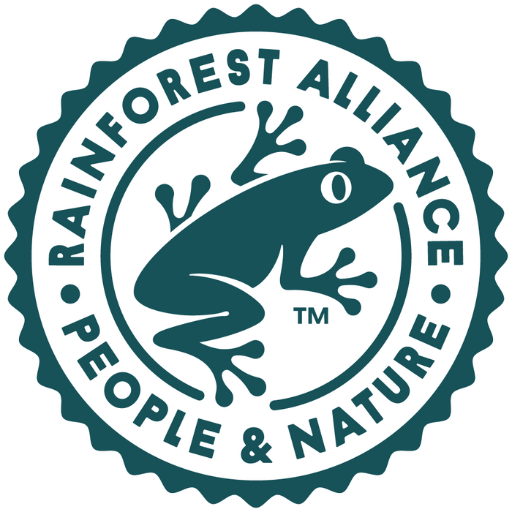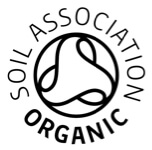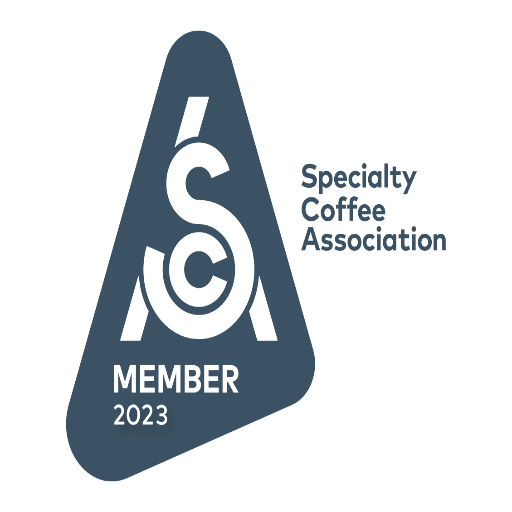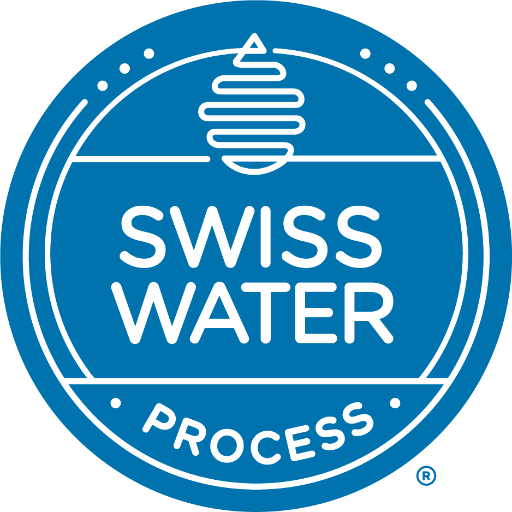Jamie Treby has been surfing the wave of innovation in coffee since he first dipped his toes into the industry over twenty years ago. During his time in coffee, he has guided numerous businesses through necessary change and development, focusing on, as he puts it, “making the things people often aren’t quite sure how to make work, work”.
Since joining DRWakefield in 2017, he has brought the same expertise and approach to the team at Thompson House, adding insight and value for roasters and producers alike (most notably on the topic of Robusta).
Therefore, we’re very excited to announce the commencement of a new chapter in Jamie’s DRWakefield story: Strategist.
In his new role as DRWakefield Strategist, Jamie will be lending his expertise to our growing audience in the UK and EU, whilst working on projects at origin.
We catch up with Jamie to hear about his new role, learn more about his time in coffee and what he gets up to when he’s not out there making waves in the industry.
Click here to find out how to get in touch with Jamie, or any of the Trade Team.
Hello Jamie Treby!
How long have you worked at DRW and what has your job been up to this point?
I’ve been at DRW since 2017, working on the trade desk as part of the team. I’ve looked a little bit more after the speciality buyers, and written what feels like a million information sheets!
Tell us about your new role!
Sure. We’ve decided to call it Strategist, as this best fits with where we’re going and what I do best. My background is quite varied, having passed through event barista, café manager, roaster and innovation, normally in a newly created or niche role, so quite often spanning multiple disciplines. This means my strengths lie in making the things people often aren’t quite sure how to make work, work. I regularly chat roast profiles or blend components with roasters now, but can help build an understanding of your business, identify the hidden stories or connections at origin and things like that. This is a more formalised way of building on that and making those skills available to our customers.
Of course, there are some other sides to it that service DRW too, looking at where we might go and working on projects that perhaps you might not expect us to. I’m sure you’ll hear more about them in the future!
What are you looking forward to in developing this new position?
Currently, a project we are working on in Brazil is super exciting as I’m not seeing anyone looking at what we chose to, but also helping to shape speciality Robusta is proving fun too. Part of that makes me wish I was roasting again as there is such a strong proposition there and with 40% of the market being Robusta, it’s surprising there isn’t really anyone capitalizing on it. We also have a coffee/noncoffee project which has huge potential that is great to be involved with but overall I think just having the time to bring out some amazing value that is held within the company is the most exciting.
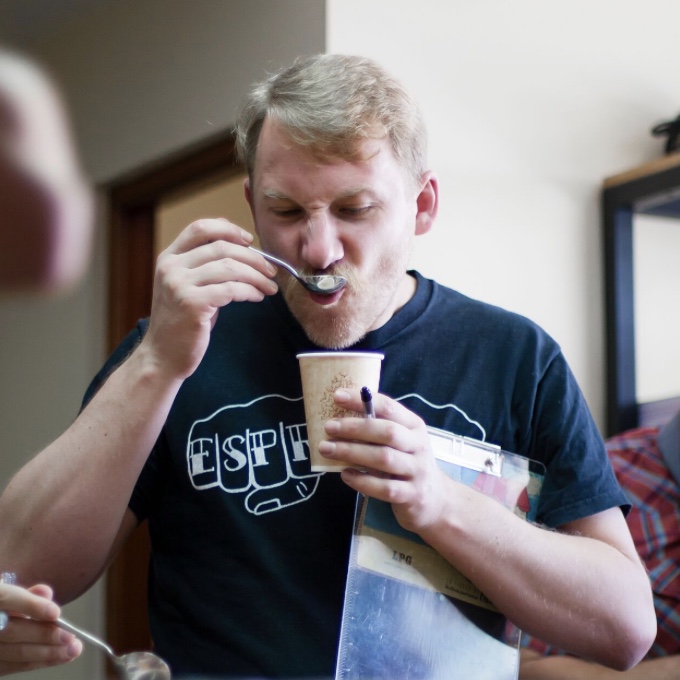
What has been your journey in coffee?
I started back with Starbucks in 2000, when they were new to the UK and I’d just finished travelling. I got itchy feet after a couple of years though but that led me to their roastery in Amsterdam where we developed things like thermal cleaning, roasting on software similar to Cropster but split across three programs so lots of error fixing! We’d occasionally get visits from Alfred Peet too, who would prefer to hide in the roasting room with us and chat coffee which was fantastic. Eventually, I moved back to the UK to start my own business but a badly timed burglary meant it was better to step back into cafes for a while whilst I rebuilt my money.
I ran a café for a couple of international sports stars where I met some great coffee friends, before moving to London where I worked for an early generation of Ristretto, the events company. It was when we were just breaking into doing jobs abroad and soon became a large part of the business. A ‘no fail’ job with clients from royalty and celebrities to congresses and trade shows threw up a huge amount of challenges and fun. I remember making espressos for the rush-hour commuters of Liverpool Street – we used so much power in the building we had to turn lights off in order to supply the espresso machines we had lined up!
After that I stepped back into a more commercial world, managing innovation in the coffee side of a high street business that was super interesting to play in. I really enjoy the fierce quality of speciality but also the tested rigour you get from the larger companies. Having a bigger budget for things helps, but of course, everything becomes much more expensive then too! Eventually, though I popped back down to London to set up one more roastery before finally joining DRW to peek a little more behind the curtain.
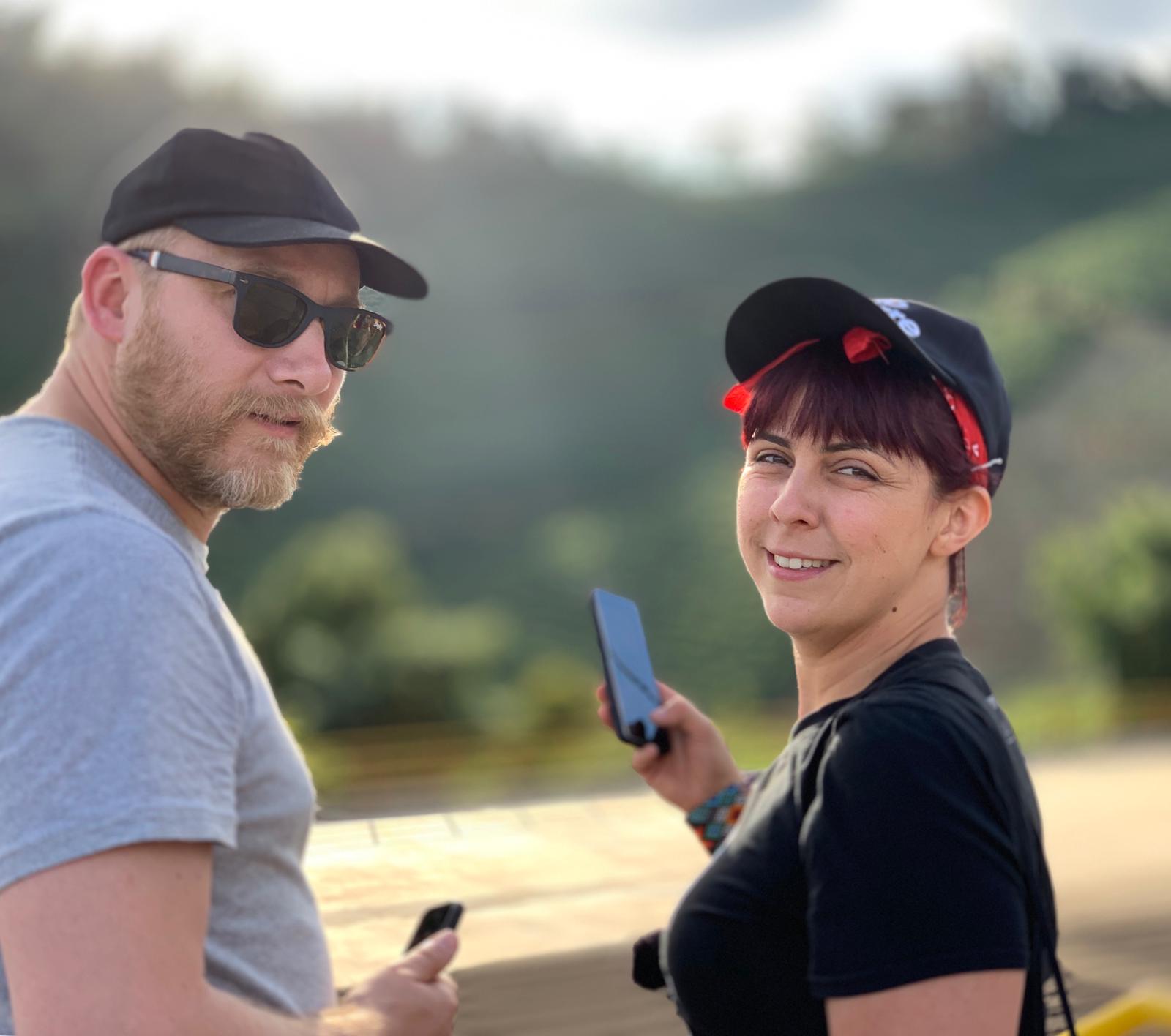 Jamie and Diana in Brazil
Jamie and Diana in Brazil
Was there a defining moment for you in coffee?
I remember in Colombia on a trip as a roaster we visited a farm where the family had been able to build their first brick wall as the result of good practice from an American roaster who was with us. We had dinner with them and enjoyed their hospitality with lots of moistened eyes. At a blind cupping with the exporter, later on, we found out their coffee was the one we all enjoyed the most and all wanted to buy! We all knew it would go to the roaster with the existing relationship though and we were all happy to see it do so. From a group of what should have been competition, to share in the success of a roaster/farmer relationship was a great thing and really reinforced my beliefs of why we do what we do.
What are the main changes you have seen during your time in the industry, both at origin and in the consuming markets?
I strongly believe everything is cyclical. I’ve seen the rise of natural coffees (when I started Natural was more often a defect than not) and the levels of extreme fermentation we are at now which I think we are starting to see drop off a little in favour of Washed.
Roasters went from sharing no knowledge at all to being much more open and friendly, though this does also mean there is a lot of misinformation out there too! There is also a huge demand for information from farmers now as well, and I think sometimes it feels like the farmer is expected to supply a retail-ready marketing solution as well as the coffee itself.
Lastly, I think perhaps we are seeing a little of the drop off of roaster influencers in favour of farmer influencers. At one point it seemed like any barista at all felt like they could advise a farmer how best to process their coffee and frequently would, though there seems to be more space now for those that are happy to listen to the farmer’s own angle and ambition and give that voice instead.
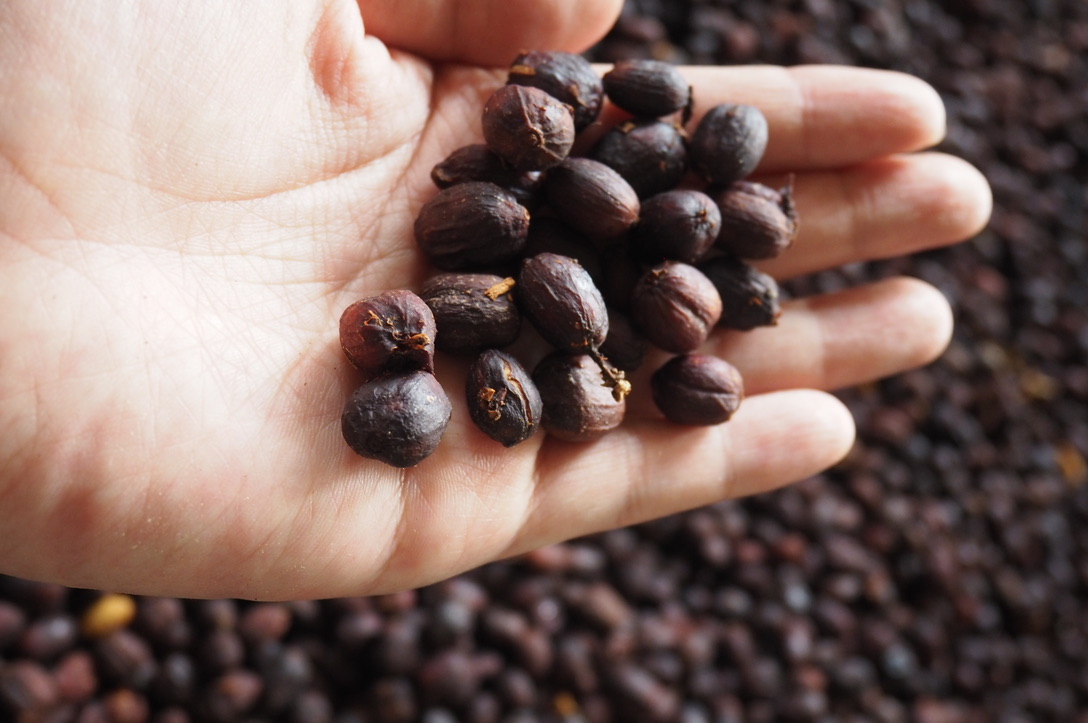
You’ve been at the forefront of some innovative projects with producers at origin for DRW. Are there any interesting things you are currently working on or new coffees that you’re excited about?
Hahahaha, yes!
Do you have any favourite coffees that you’re enjoying at the moment?
Not really, my tastes change so much with the seasons! After Caffè Culture and a plethora of anaerobic and carbonic naturals, I’m really looking forward to the washed Rwandans coming, though Costa Rica has had a stormer this year! Normally, I covet Javanica. Not often on the lists, but an always buy if I spot it fresh.
How do you feel innovation at origin impacts how we drink coffee, and vice versa?
Oof, big question! On one hand, it can improve costs and make it more likely a roaster will buy a coffee, by improving the commerciality to the grower, shortening the route to market or increasing reliable quality at a price point. Some of the more commercial aspects to yeast inoculation are doing this, as are too plant yields and things like that. These probably will affect the mass market more, so are less headline-grabbing but more impactful.
The constant drive for new, both flavours, processing methods, and varietals drives the desirability more, particularly amongst the influencers and will trickle down to that market too, after fuelling the top end and the constant drive for change. Things like anaerobic fermentation and carbonic maceration are definitely pulling the flavour profile of coffee more to the fruity and causing roasters to adapt profiles, baristas recipes and things like that, and this constant drive for new and different has undoubtedly changed the way we consume and perceive coffee now. Some of these though will be a passing phase, whilst others may yet be the next big thing.
Innovation over here helps too to push up consumption, which leads to more coffee being needed, and our understanding of things like climate change has lead to new countries growing coffee, or more research being applied on existing producer markets.
With roasters like Loring cutting gas consumption or Giesen entering the market, there are a lot more decent options around now that are removing the need for giant pockets before you enter the roasting world. The shortening of communication through social media has created awareness of roasters and farmers more than ever and it is interesting watching where that goes.
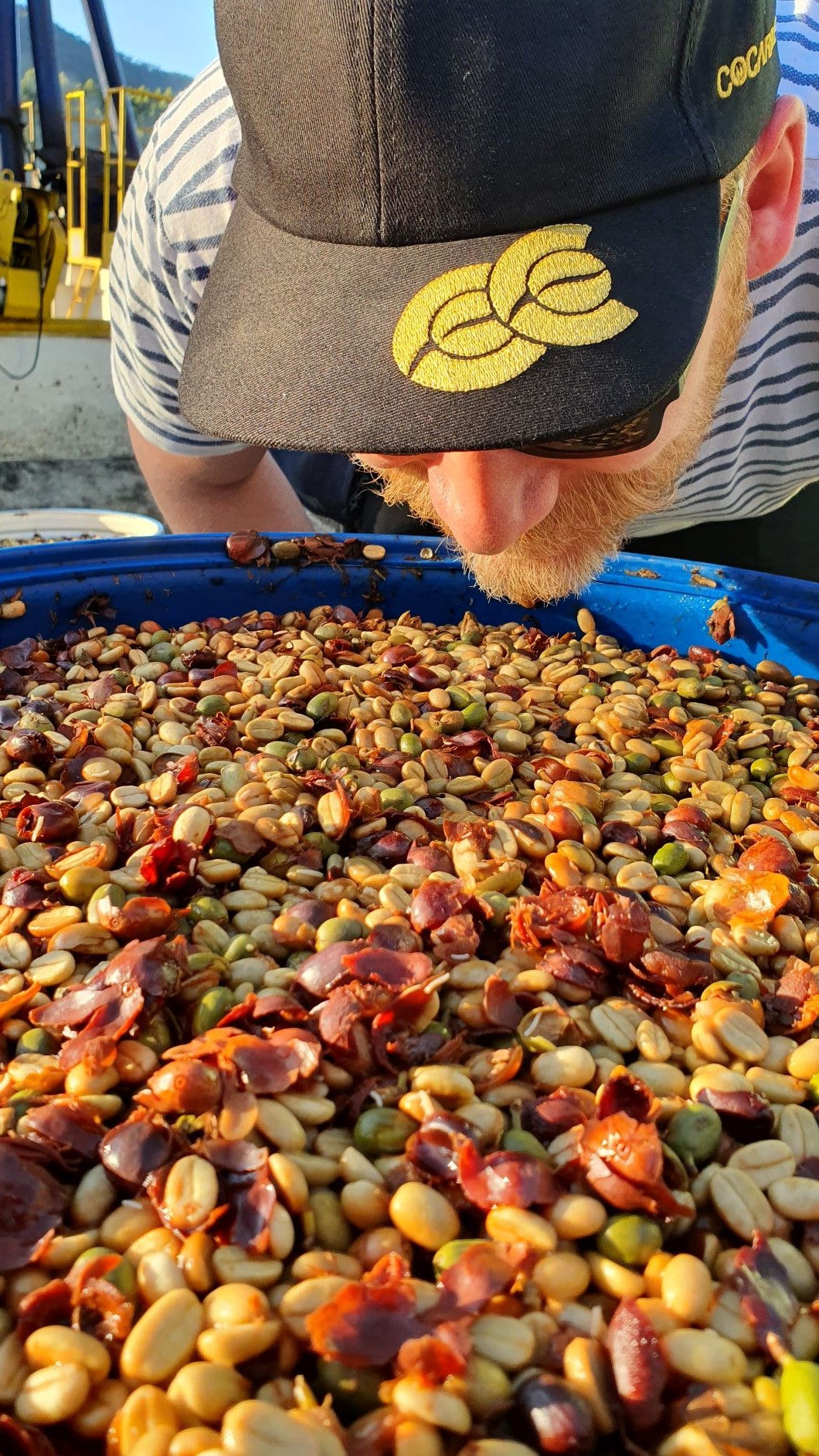 A freshly opened barrel of an experimental fermentation lot before being spread out to dry at Grota Funda
A freshly opened barrel of an experimental fermentation lot before being spread out to dry at Grota Funda
At Caffe Culture Show earlier this year, there were some fascinating conversations about the coffee supply chain and how innovation can have a transformative impact between producers and roasters, in both directions.
What do you feel the importance is of working in an innovative position as a trader, especially in a company of such long-standing?
It’s a huge responsibility for sure. I think in an innovation role – in any innovation role, it’s important to not be the only voice. An old boss once told me how we may each only have one or two good ideas in our lives, but everyone has this, so to only listen to my voice is to only bring one or two new ideas in my career. By working with the trade team, exporters and farmers as well as roasters and consumers there is a chance of bringing many great new ideas for years to come. This has been shown before with things like traceability and later Fairtrade, RFA and Organic at DRW where the innovation was the ethics and certifications with the growth that followed, as well as working with farms like Daterra and Café Granja La Esperanza from a quality point of view so this is just the next step in that long journey.
Do you feel there are any important considerations in being the innovative link between many producers and roasters?
Yes. Words can be powerful things, and it is easy to get carried away sometimes with an idea without considering exactly how it impacts all involved. This includes good intentions having unintended consequences, as we have sometimes seen with Cup of Excellence, or novel processing and chasing after the next big varietal.
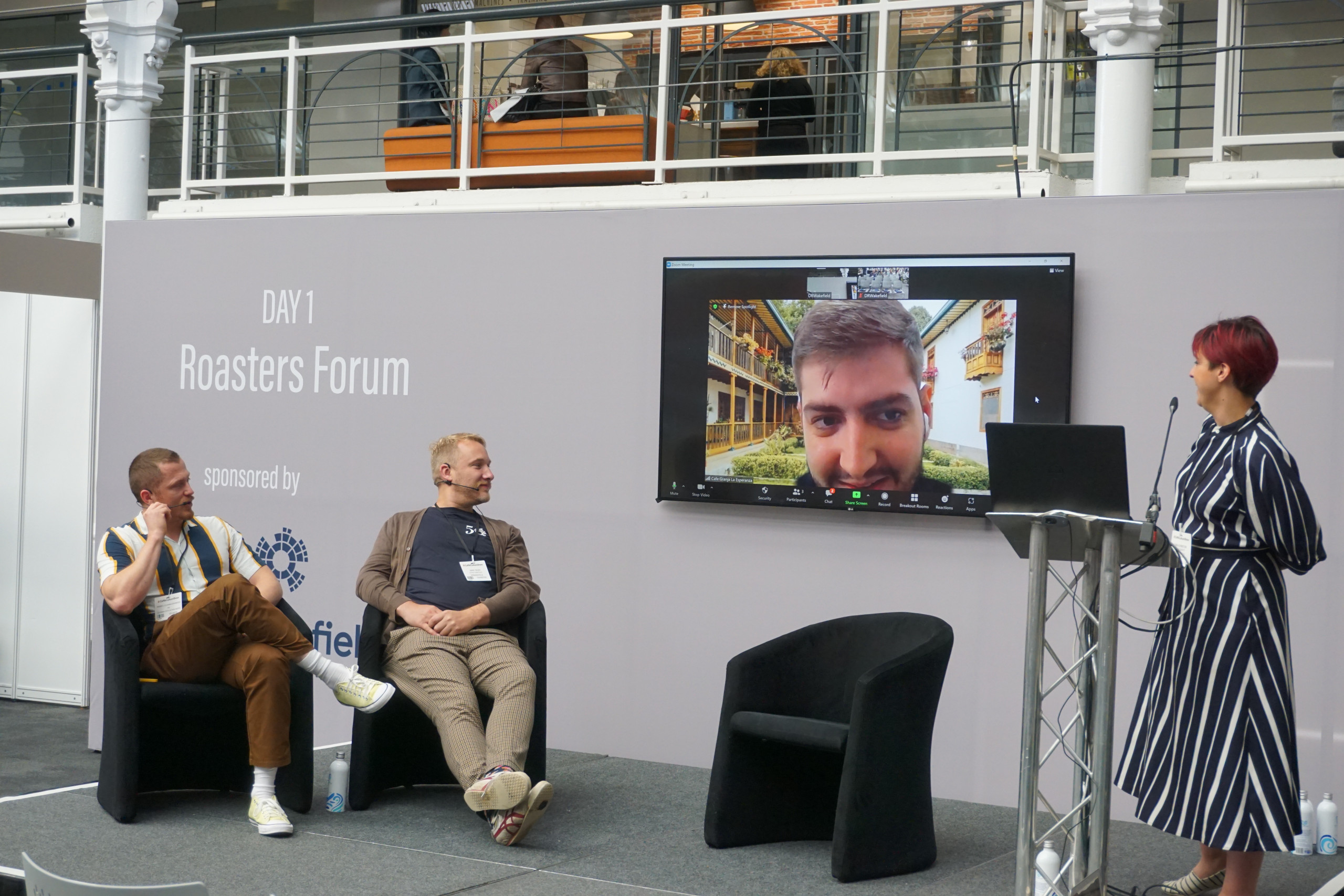
Where do you live now and where did you grow up?
London! In sunny Catford to be precise. South East is full of parks and community and good rail links too. I grew up in the west country, and that’s what I think of as home still though I think I’ve lived away from there as much if not more by now!
What is there to do around Catford? Do you have any favourite coffee spots, restaurants or hot spots to hang out?
Blythe Hill Fields is great – such a good view from a well-loved little park. There’s a great Italian nearby (the chef grew up in a Michelin Starred environment), a very modern Indian and lots more! The whole area has a lot of creativity and passionate independents. Closest for Coffee is the Espresso Cartel –they stock a great range of roasters and are constantly changing which is very handy indeed!
When you’re not doing coffee stuff, what do you do? Do you have any hobbies or interests outside of work?
I do like my art. I wish I could have more walls to hang things on though the framing gets very expensive. I’ve dabbled in neon making too and would love to do more, though that would require a garage and I don’t have one of those. Other than that, I stay in food – I’m eternally curious so love learning and working with other industries, and will happily cook, brew, drink and eat most things.

Are you reading anything you’d like to recommend?
Most recently I think I’d recommend The Food Explorer by Daniel Stone. It’s about David Fairchild, who was a nineteenth-century food explorer and introduced so many crops to the US and ultimately created the culinary world there that we know now.
What are you listening to at the moment?
Well, we’re coming up to 1066 on the British History Podcast so that’s exciting, but I definitely cycle through a few here. Gastropod and 99% Invisible are probably my most recommended, with Nice Try! and Philosophy Bites being some perhaps lesser-known but just as valuable recommendations. The Hollywood Con queen is up there with the most bizarre of true stories though Untold: The Daniel Morgan Murder is insane, and still ongoing politically too.
Do you have a mantra you live by?
Nope! I’m pretty much a non-subscriber.
And finally…
What is your favourite origin?
So far for scenery, it’s been Colombia, but for the welcome, the food and the hospitality it has to be Brazil.
How do you take your coffee?
Black mainly! I have a wonderful Bairro Alto brewer that I use almost daily. Filter>espresso. 😉

